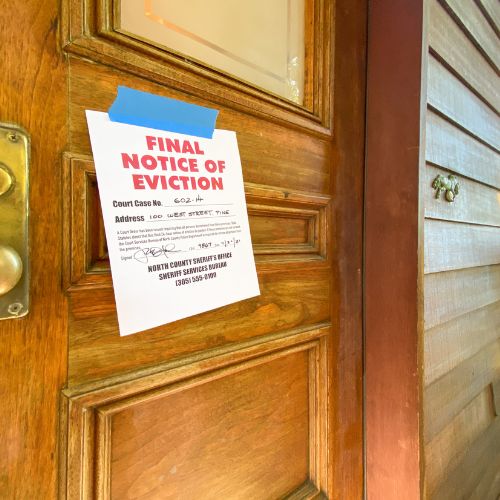Section 24 was announced in the Summer Budget of 2015 and introduced on 6th April 2017. It is an amendment of UK Tax Law and its comparative newness is leaving tenants and landlords alike in the dark. However, its vast impact means that it’s imperative to understand the ins and outs of this regulation.
Section 24 means that the amount of income tax relief landlords receive for residential property finance costs will be restricted to the basic rate of tax. Consequently, you will no longer be able to claim mortgage interest, or any other property finance, as tax-deductible. Instead, by 2021, rental profit will be taxed with a maximum deduction for finance costs at the basic rate of 20%.
The perceived Government objective is to reduce the number of ‘accidental’ landlords operating in the market. By encouraging landlords to become professional property businesses, it is expected to benefit landlords and tenants alike by improving the stability and profitability of the sector.
If you have any kind of loan or mortgage, then this will concern you and your property.
Furthermore, if you have interest in a buy-to-let property, landlords can also be affected by these changes. If these ventures are a large proportion of your costs, you will pay tax on both those costs and on your profits.
Landlords currently can offset 75% of their mortgage interest vs. rental income. The changes have been introduced in stages to eliminate the tax relief on mortgage interest payments in the following way:
Landlords can ensure that Section 24 does not affect their livelihood so strongly through changing the way in which their business is run and therefore taxed by also trimming expenses in other areas.
These changes could prove beneficial depending upon the condition of each landlord’s circumstances, these are:
Capital gains tax and stamp duty.
Re-mortgage fees and early repayment penalties from lenders.
Corporation tax on a landlord’s profits.
Placing the portfolio in a Beneficial Interest Company Trust: This would allow the landlord to move the economic value of their property by transferring interest. It does not require re-mortgaging, but it also involves switching from income to corporation tax which entails professional fees.
Partner businesses dividing profits: Where one of the partners occupies the lower 20 percent of tax rate or an unemployed partner can be brought into the business, the tax payment will be reduced.
Shrink or diversify your portfolio: This is especially important to consider if some of the properties are underperforming.
Develop a business plan: This is prudent to ensure your investment is being maximised and profitability managed. It is also a requirement for the new Prudential Regulation Authority (PRA) lending regulations.
Investing in Commercial Property: Commercial properties are also exempt from Section 24. Taking the opportunity to diversify your property portfolio is always wise and would spread the effects of such legal changes.
Avoid the higher tax bracket: This can include making higher pension contributions or more gift donations to distribute your wealth.
Remortgaging: This allows the landlord to benefit from any low-interest rates, particularly for those with significant equity. From this, lower monthly repayments will compensate for any increased tax burden.
Increase Rent: This will offset the loss but without straying into a higher tax bracket.
Although the new regulations could appear worrisome at first glance, there are other options that can be considered to both minimise the loss you make as a landlord and steel your resources in other areas to ensure you are prepared for the changes in the coming months. If you require legal advice, Ackroyd Legal is at hand to provide the specialist guidance.

At Ackroyd Legal, our commercial property law specialists hold unrivalled levels of legal and industry expertise…

Possession claims arise when a landlord or stakeholder is forced to take possession of a property…

Our team of property experts hold between a truly unrivalled level of experience in investment property….

As an established property law firm, Ackroyd Legal offers a full range of legal services relating to property finance…

We are proud to offer a full and comprehensive service from start to finish, including providing sound and practical legal advice…

We act for both landlords and tenants in providing advice and representation on commercial tenancies…
GET IN TOUCH

16 Prescot Street,
London, E1 8AZ
Ackroyd Legal is a trading style/name of Ackroyd Legal (London) LLP , which is authorised and regulated by the Solicitors Regulation Authority, SRA No. 554585 and is a LLP registered in England & Wales, Company No. OC360125; VAT no. 445717436;
David Ebert LLP is a separate entity from Ackroyd Legal (London), LLP and are authorised and regulated by the Solicitors Regulation Authority, SRA no. 558176.